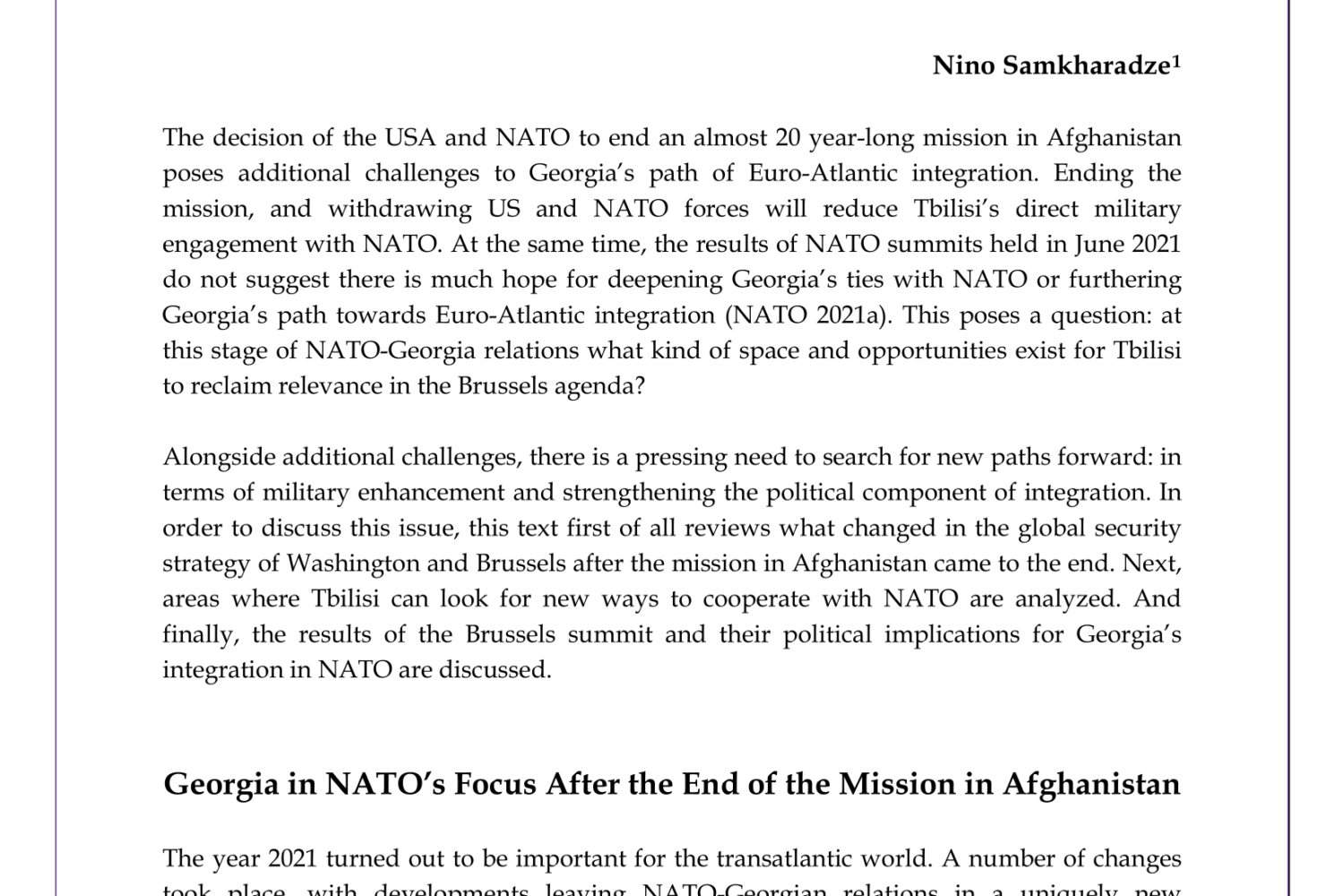2021-07-22 11:15:14
Policy Memo #46
The decision of the USA and NATO to end an almost 20 year-long mission in Afghanistan poses additional challenges to Georgia’s path of Euro-Atlantic integration. Ending the mission, and withdrawing US and NATO forces will reduce Tbilisi’s direct military engagement with NATO. At the same time, the results of NATO summits held in June 2021 do not suggest there is much hope for deepening Georgia’s ties with NATO or furthering Georgia’s path towards Euro-Atlantic integration (NATO 2021a). This poses a question: at this stage of NATO-Georgia relations what kind of space and opportunities exist for Tbilisi to reclaim relevance in the Brussels agenda?
Alongside additional challenges, there is a pressing need to search for new paths forward: in terms of military enhancement and strengthening the political component of integration. In order to discuss this issue, this text first of all reviews what changed in the global security strategy of Washington and Brussels after the mission in Afghanistan came to the end. Next, areas where Tbilisi can look for new ways to cooperate with NATO are analyzed. And finally, the results of the Brussels summit and their political implications for Georgia’s integration in NATO are discussed.




